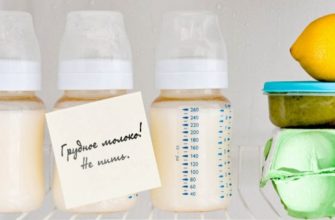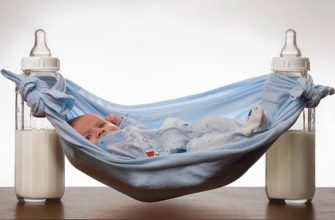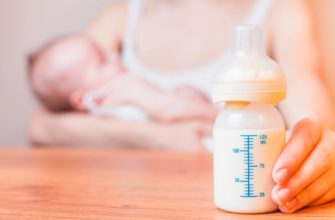Pre-cook nipples
Many strongly recommend that even during pregnancy, rub the nipples with a hard towel or stimulate (stretch) them with your fingers. This is a dangerous fallacy, because such an aggressive effect provokes the production of the hormone oxytocin. And it leads to premature contraction of the uterus and the onset of labor.
Strain the milk left after feeding
You do not need to do this, because the female body produces as much milk as is necessary for feeding the baby. If its residues are regularly expressed, milk production becomes more intense. It gradually accumulates, the child does not eat all the milk, which leads to development lactostasis.
Feed the baby by the clock, and at night give a dummy, not a chest
The body of each baby is individual, and, depending on this, he needs a different amount of milk and a different interval between feedings. Those who advise to refuse night feedings are wrong: after all, during this period in the female body a greater amount of prolactin is synthesized - the hormone that is responsible for the production of milk.
Express milk by hand to estimate its quantity
Manual pumping is an uninformative method for determining the amount of milk, because it is impossible to express it as much as the baby sucks, even with all the desire.
To feed the child with water
Many argue that breast milk is food, and in order to replenish the fluid balance, the child needs to be additionally supplemented with water. This is not so; mother's milk is both food and water. Therefore, you do not need to finish drinking the baby, even in hot weather.
Endure the pain
Sore nipples during breastfeeding is a common problem. But you have to fight it. For this, it is necessary to correctly attach the baby to the chest so that it completely grips the nipple. And if painful cracks form on the skin, the nipples are lubricated with regenerating agents (Bepanten, Purelan, sea buckthorn oil).
We also read: how to apply the baby to the chest
The color of milk indicates its fat content
This is true, but there is no need to panic if translucent drops of liquid stand out from the breast before feeding. This does not mean that milk is not fatty enough and the child needs to be additionally fed with artificial mixtures. The fact is that the composition of milk is constantly changing. So, at the beginning of feeding, it really contains less fat, the front milk is watery. This is necessary in order to saturate the children's body with liquid. Toward the end of feeding, milk acquires the desired fat content and nutritional value.
Crying after feeding is a sign of hunger
Sometimes it is. But there are other reasons for baby crying. For example, a child may be hot or cold, he is tormented by colic and discomfort. Therefore, there is no need to rush to feed the baby with the mixture (supplementation with the mixture is a direct path to the transition to artificial feeding), perhaps he is not crying because he is hungry. There may also be a reason for crying after feeding: you removed your breasts too early (let the baby suck as much as he wants); he incorrectly captures the nipple and receives less milk; breast milk contains allergens that irritate the stomach (review your diet).
Do not give baby in the first hours after birth
During this period, colostrum is produced, which many consider a useless product. And in vain, because it contains indispensable components for the newborn, which contribute to its normal development and protect against infections (It contains anti-infectious proteins, prebiotics, vitamins A and E and other nutrients). Therefore, the sooner you give your baby a breast, the better. Applying to the breast immediately after birth will protect the newborn from bacterial infections, create the right intestinal flora, and help to remove meconium and excess bilirubin.
End breastfeeding before the age of 1 year
Many are inclined to believe that after the baby is one year old, he does not need breast milk. Moreover, it is considered harmful to him. Of course, breast milk alone is not enough for a full-fledged nutrition of a grown up baby, but there is no need to refuse from HB, on the contrary, doctors recommend prolonging this period to at least a year and a half.
We also read:









